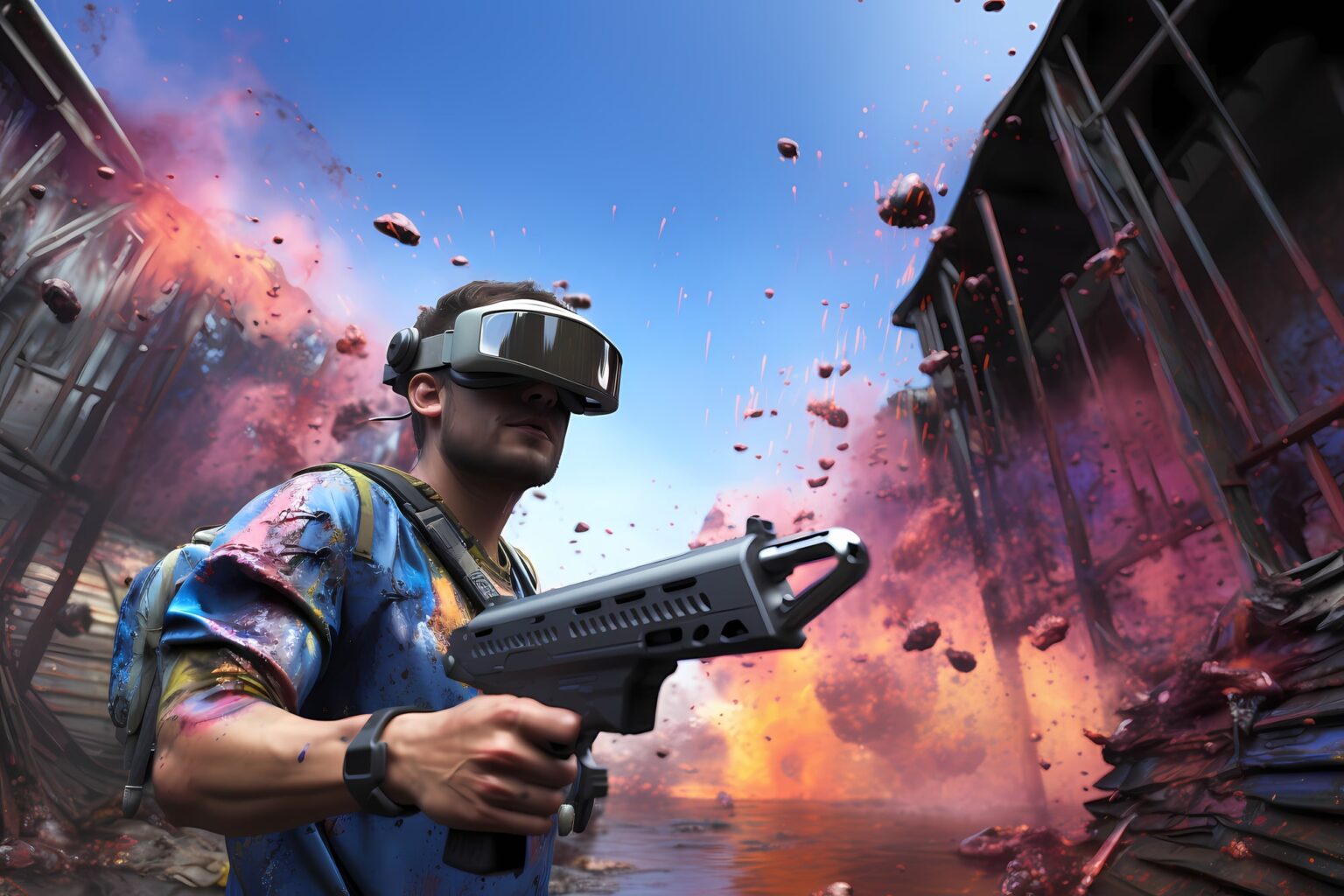Blockchain Gaming: The Convergence of Gaming and Cryptocurrency in Virtual Economies” explores the intersection of blockchain technology and gaming, highlighting the emergence of virtual economies and decentralized ecosystems within video games. Here’s an overview of the key points covered:
Introduction to Blockchain Gaming:
- Definition: Blockchain gaming refers to the integration of blockchain technology, cryptocurrencies, and non-fungible tokens (NFTs) into video games, enabling players to own, trade, and monetize in-game assets securely on blockchain networks.
- Tokenization of Assets: Blockchain gaming platforms tokenize in-game assets such as characters, items, skins, and virtual real estate as unique digital assets represented by NFTs. These assets are secured on a blockchain, allowing players to prove ownership, transfer ownership, and monetize their virtual possessions outside of the game environment.
Features and Benefits of Blockchain Gaming:
- True Ownership: Blockchain gaming grants players true ownership of in-game assets, empowering them to buy, sell, and trade assets peer-to-peer without restrictions imposed by game publishers or centralized marketplaces.
- Interoperability: Blockchain gaming fosters interoperability between different games and platforms, allowing players to transfer assets seamlessly between games or use them in cross-platform experiences, enhancing player freedom and flexibility.
- Economic Incentives: Blockchain gaming introduces economic incentives for players to participate in gaming ecosystems, such as earning cryptocurrency rewards, participating in decentralized finance (DeFi) activities, or generating passive income through play-to-earn mechanisms.
Use Cases and Applications:
- NFT Marketplaces: Blockchain gaming platforms host NFT marketplaces where players can buy, sell, and trade in-game assets using cryptocurrencies. These marketplaces provide liquidity, transparency, and decentralized ownership of digital assets, creating new revenue streams for players and game developers.
- Play-to-Earn Models: Play-to-earn games reward players with cryptocurrency or tokens for their participation, contributions, and achievements within the game. Players can monetize their gameplay by earning valuable assets that have real-world value outside of the game environment.
- Decentralized Autonomous Organizations (DAOs): Some blockchain gaming projects incorporate DAOs to empower players with governance rights and decision-making power over the development, management, and monetization of gaming ecosystems. DAOs enable community-driven governance, revenue sharing, and collective ownership of gaming platforms.
Challenges and Considerations:
- Scalability: Scalability remains a challenge for blockchain gaming platforms due to limitations in transaction throughput, latency, and network congestion on blockchain networks. Layer 2 solutions, sidechains, and scaling protocols are being explored to address scalability concerns and improve the user experience.
- Regulatory Compliance: Blockchain gaming raises regulatory questions related to securities laws, taxation, consumer protection, and intellectual property rights. Regulatory clarity and compliance frameworks are needed to address legal uncertainties and ensure a secure and compliant environment for blockchain gaming activities.
Future Outlook:
- Mainstream Adoption: Blockchain gaming has the potential to gain mainstream adoption as players seek new forms of entertainment, social interaction, and economic opportunities in virtual worlds. Continued innovation, user-friendly interfaces, and compelling gameplay experiences will drive adoption and engagement in blockchain gaming ecosystems.
- Convergence with Metaverse: Blockchain gaming is converging with the concept of the metaverse, a collective virtual space where users can interact, socialize, and engage in immersive experiences across different digital environments. The metaverse represents the future of online entertainment, commerce, and social networking, with blockchain gaming playing a central role in shaping its evolution.
Conclusion:
“Blockchain Gaming: The Convergence of Gaming and Cryptocurrency in Virtual Economies” highlights the transformative potential of blockchain technology in revolutionizing the gaming industry and creating new paradigms of virtual economies, player empowerment, and decentralized ecosystems. By integrating blockchain technology, cryptocurrencies, and NFTs into gaming experiences, blockchain gaming pioneers new forms of ownership, participation, and economic value creation, ushering in a new era of innovation and disruption in the gaming landscape.



